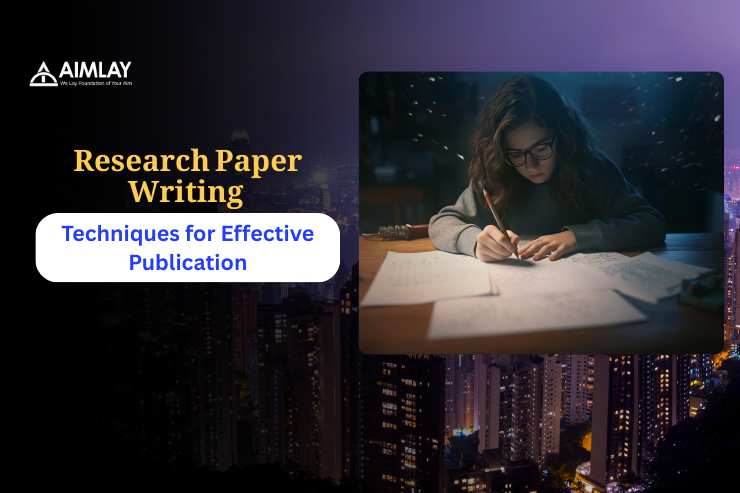PhD in Generative AI: Course Details, Eligibility, Admission, Jobs & Scope
- aimlay01
- Apr 7, 2025
- 4 min read

PhD Course: What is PhD in Generative AI?
A PhD in Generative AI is an advanced research degree focused on the theoretical and practical aspects of artificial intelligence, specifically in generative models such as Generative Adversarial Networks (GANs), Variational Autoencoders (VAEs), and Transformer-based architectures. The program is designed for individuals passionate about advancing AI technologies and contributing to breakthroughs in areas such as computer vision, natural language processing (NLP), robotics, and synthetic data generation.
PhD Course: Key Aspects
Duration: Typically, a PhD in Generative AI takes 3-5 years to complete, depending on the research scope and institution.
Focus Areas: Research may cover deep learning, reinforcement learning, neural networks, AI ethics, computational creativity, and more.
Research-Based: The program primarily involves independent research, culminating in a dissertation.
Interdisciplinary Approach: Often combines elements of machine learning, data science, statistics, cognitive science, and computational mathematics.
Collaboration Opportunities: PhD candidates may work with tech companies, research labs, and academic institutions.
PhD Course: Why Pursue a PhD in Generative AI?
Innovation and Impact: A PhD allows scholars to contribute novel advancements to the AI field.
High Demand: Generative AI is transforming industries such as healthcare, finance, entertainment, and cybersecurity.
Specialization Opportunities: Provides an edge in AI research, making graduates highly sought after.
Academic and Industry Careers: Opens doors to roles in academia, research institutions, and top tech firms like Google, OpenAI, and Meta.
Funding and Grants: Many universities and organizations offer scholarships and research grants.
PhD Course: PhD Eligibility Criteria
While eligibility requirements may vary by institution, the general criteria for enrolling in a PhD in Generative AI include:
Educational Qualification: A Master’s degree (M.Tech, M.Sc, MS, or equivalent) in Computer Science, AI, Data Science, or a related field. Some institutions may accept exceptional candidates with a strong Bachelor’s background.
Research Proposal: A well-defined research proposal outlining the intended area of study.
Work Experience: Some universities prefer candidates with industry or research experience.
Entrance Exams: GRE, GATE, or institution-specific exams may be required.
Language Proficiency: Non-native English speakers may need TOEFL or IELTS scores.
Technical Skills: Proficiency in programming (Python, TensorFlow, PyTorch), mathematics (linear algebra, probability, statistics), and machine learning concepts.
PhD Course: PhD Course Subjects in Generative AI
A PhD Course curriculum is flexible and depends on the research area, but typical subjects include:
Deep Learning Architectures (CNNs, RNNs, Transformers, etc.)
Generative Models (GANs, VAEs, Diffusion Models)
Natural Language Processing (NLP)
Computer Vision and Image Synthesis
Ethics and Bias in AI
Mathematical Foundations of AI
Reinforcement Learning
Computational Creativity and AI-driven Content Generation
AI for Robotics and Autonomous Systems
Advanced Optimization Techniques
PhD Course: PhD Admission Process
Step 1: Research and Shortlist Universities
Identify institutions that offer a PhD in Generative AI. Top universities include MIT, Stanford, Oxford, and ETH Zurich.
Step 2: Prepare Application Materials
Statement of Purpose (SOP): Clearly explain your research interests and why you want to pursue a PhD.
Letters of Recommendation: Typically, three letters from professors or employers.
Academic Transcripts: A strong academic record in relevant fields.
Research Proposal: A well-structured document outlining your research objectives.
CV/Resume: Highlighting relevant research, projects, and work experience.
Step 3: Entrance Exams and Interviews
Some universities require GRE, GATE, or other standardized tests. Shortlisted candidates may be interviewed to assess research aptitude.
Step 4: Secure Funding
Explore scholarships, assistantships, or industry collaborations for financial support.
Step 5: Enrollment and Research Work
Once accepted, students undertake coursework (if required) and begin their research under faculty supervision.
PhD Course: Is it Worth it to Pursue a PhD in Generative AI?
Pros:
Expertise in a Cutting-Edge Field: Generative AI is revolutionizing industries.
High Salary Potential: AI specialists are among the highest-paid professionals.
Career Flexibility: Opportunities in academia, tech industry, and research labs.
Networking and Collaboration: Work with leading AI researchers and organizations.
Access to Resources: Exposure to high-end computing infrastructure and datasets.
Cons:
Time-Consuming: Requires 3-5 years of commitment.
Competitive Field: Research in AI is rapidly evolving, requiring continuous learning.
Uncertain Academic Job Market: While industry demand is high, academic positions are competitive.
Workload Pressure: Managing research, publications, and deadlines can be intense.
PhD Course: Job Opportunities
A PhD in Generative AI opens doors to a wide range of careers across academia, research institutions, and industry.
Industry Roles:
AI Research Scientist - Develops new AI models and algorithms.
Machine Learning Engineer - Implements AI models in real-world applications.
Data Scientist - Analyzes complex datasets using AI techniques.
AI Ethics Specialist - Ensures fairness and transparency in AI models.
Robotics Engineer - Applies generative AI in automation and robotics.
Computational Creativity Specialist - Works on AI-generated art, music, and media.
AI Consultant - Advises companies on AI integration and innovation.
Academic and Research Roles:
University Professor/Lecturer - Educates and mentors future AI professionals.
Postdoctoral Researcher - Conducts advanced AI research in institutions.
Research Scientist in AI Labs - Works in labs like OpenAI, DeepMind, and Google Research.
Top Hiring Companies:
OpenAI
Google DeepMind
NVIDIA
Meta (Facebook AI Research)
Microsoft Research
Tesla AI
Amazon AI Labs
Conclusion
A PhD in Generative AI is an excellent choice for those passionate about AI research and development. With the increasing demand for generative AI applications, PhD graduates have lucrative opportunities in both academia and industry. However, pursuing a PhD requires dedication, technical expertise, and a long-term commitment. If you aspire to be at the forefront of AI innovation, a PhD in Generative AI can be a rewarding and impactful journey.








Comments